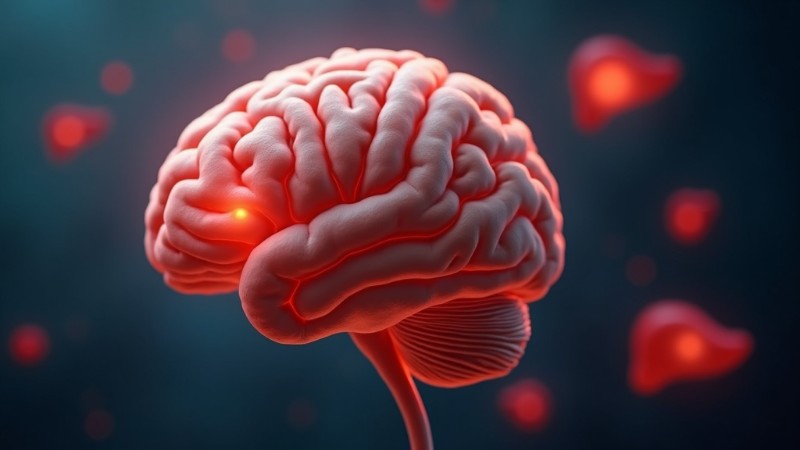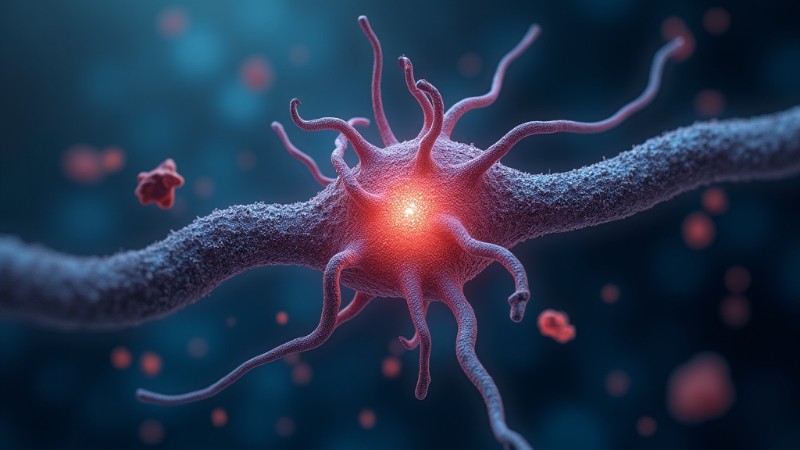Aging is a complex process that impacts various systems in the body, with the liver and brain being two of the most vital organs affected. Recent studies indicate a significant link between liver inflammation and cognitive decline in aging individuals. Understanding this connection is crucial for preventive measures and promoting long-term brain health.
Key Takeaways
Liver inflammation has been linked to cognitive decline in aging individuals, with chronic liver conditions increasing the risk of dementia and Alzheimer’s disease.
- Liver inflammation can disrupt the blood-brain barrier, leading to cognitive issues such as memory loss and difficulty concentrating.
- Chronic liver conditions like cirrhosis and NAFLD have been associated with higher rates of dementia and Alzheimer’s disease.
- Maintaining liver health through lifestyle modifications and medical interventions may help reduce the risk of cognitive decline and enhance quality of life in later years.
Understanding liver inflammation and its causes
Liver inflammation, also known as hepatitis, occurs when the liver becomes swollen due to infection, alcohol consumption, obesity, or autoimmune disorders. Chronic liver inflammation, often unnoticed until advanced stages, can lead to liver damage or cirrhosis. One of the lesser-known consequences of liver inflammation is its potential effect on the brain, particularly in older adults.
As the liver becomes inflamed, it can release inflammatory cytokines into the bloodstream, which may also impact other organs, including the brain. These inflammatory markers are believed to play a role in the cognitive decline observed in many aging individuals.
How liver inflammation impacts cognitive function
The brain and liver are interconnected in ways that extend beyond basic metabolism. When liver inflammation occurs, it can trigger a cascade of inflammatory responses throughout the body. In particular, the systemic inflammation caused by liver disorders can disrupt the blood-brain barrier (BBB), a protective layer that shields the brain from harmful substances.
Aging individuals with liver inflammation often experience symptoms like memory loss, difficulty concentrating, and slower cognitive processing. These cognitive issues are sometimes dismissed as typical signs of aging, but emerging research suggests that liver health may play a significant role in the progression of these symptoms.
Chronic liver conditions such as cirrhosis and NAFLD have been linked to higher rates of dementia and Alzheimer’s disease, emphasizing the importance of early detection and management of liver inflammation.
Scientific studies linking liver inflammation
Several studies have explored the connection between liver inflammation and decline, with compelling results. A study published in the Journal of Hepatology found that patients with chronic liver disease, particularly those with NAFLD, exhibited greater cognitive decline compared to individuals without liver disease.
The researchers concluded that systemic inflammation and oxidative stress originating from the liver may accelerate neurodegenerative processes, leading to cognitive impairment.
Additionally, a study in Hepatology International highlighted the role of hepatic encephalopathy, a condition where toxins from liver dysfunction affect brain function. This condition is particularly prevalent in patients with cirrhosis, further strengthening the link between liver health and cognitive abilities.
As the liver loses its capacity to filter out toxins due to inflammation or disease, these toxins accumulate in the bloodstream and eventually cross into the brain, causing cognitive disturbances and mood changes.
Liver health management
Preventive measures include adopting a balanced diet, reducing alcohol consumption, managing weight, and controlling conditions like diabetes and hypertension that can worsen liver inflammation.
Regular check-ups and liver function tests are essential for detecting liver inflammation early. Medical professionals may recommend lifestyle modifications or treatments such as anti-inflammatory medications or dietary changes to reduce liver inflammation and potentially protect brain health.
For individuals already experiencing liver-related cognitive issues, early intervention is key. Managing liver disease through prescribed medications, lifestyle changes, and regular monitoring can mitigate the risk of further cognitive decline. In some cases, cognitive rehabilitation therapies may help slow down the progression of memory loss and other cognitive impairments.
In summary, as the population ages, understanding the impact of liver health on brain function becomes increasingly important.
By maintaining liver health through lifestyle modifications and medical interventions, individuals may be able to reduce the risk of cognitive decline and enhance their quality of life in later years.
Addressing both liver and cognitive health is essential for aging populations, and proactive steps can help mitigate the risk of developing dementia or other neurodegenerative conditions. Regular screenings, a healthy diet, and lifestyle changes are crucial in maintaining both liver and brain health, ensuring long-term cognitive vitality.














